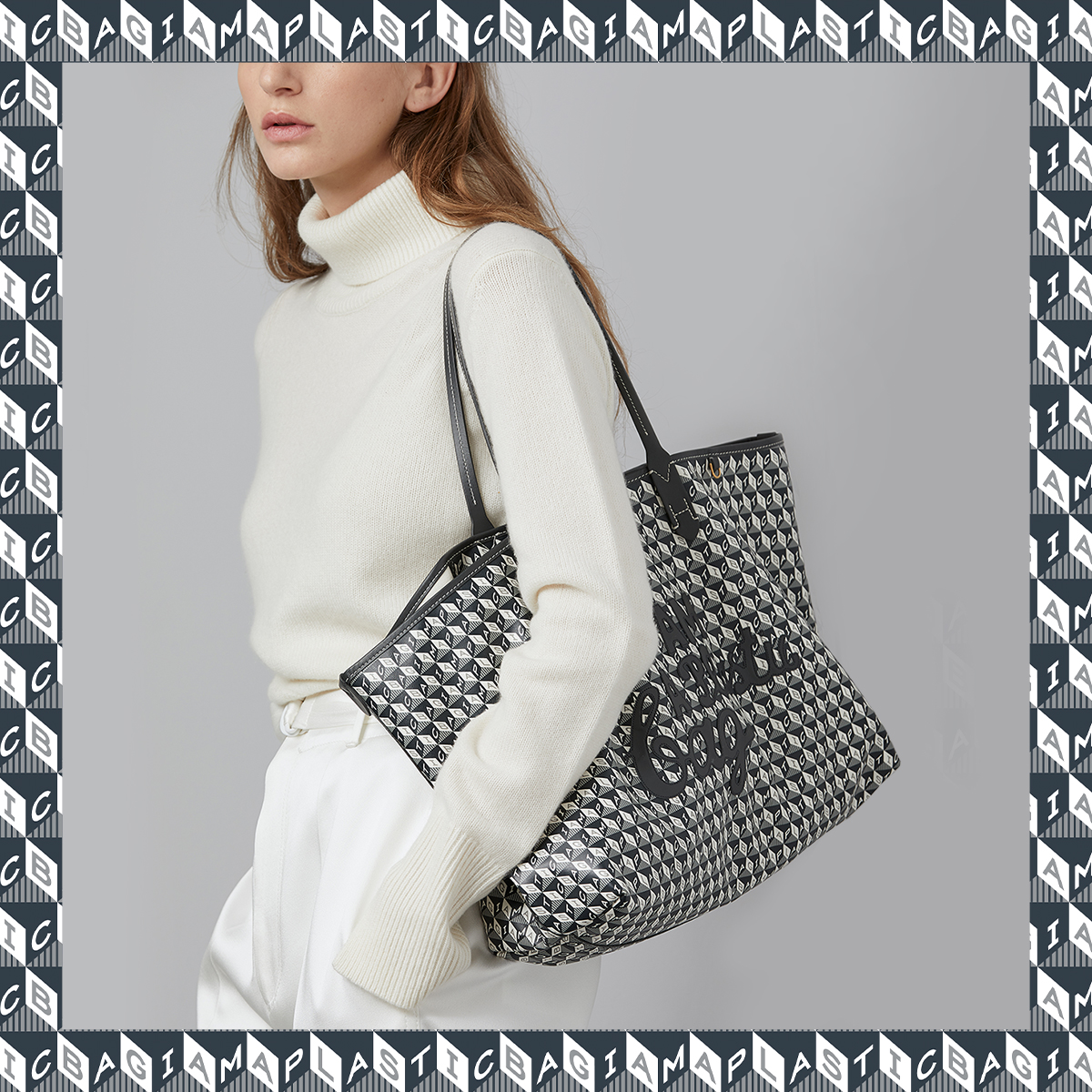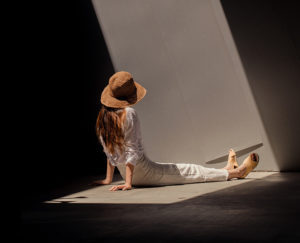
October 30, 2020 at 09:49AM

We’ve been sippin’ on superfood lattes since way before it became a thing. If you’re a devoted Chalkboard reader, chances are you’ve actually got a cup of something mushroomy or cacao-filled as you read this! If you’re new to us and curious why a couple of your friends are now obsessed with things like reishi, herbs or adaptogens, Fall 2020 is definitely your time to try a few stress-busting, immune-boosting concoctions…
Meet Adriana Ayales, the clinical herbalist behind NYC’s Anima Mundi, a shop filled with wild-crafted ancient remedies made accessible — and pretty cool. Adriana is one of our go-to pros in the space, always ready with a recommendation for herbs that suit what we’re going through right now.
We spent the morning with Adriana and asked her to walk us through her daily routine and to share more about her passion to bring ancient herbs to the modern woman…
Name: Adriana Ayales
ADVERTISEMENT
ADVERTISEMENTKate Spade Autumn/Winter Sale |
Business: Anima Mundi (meaning: “the soul of nature”)
Living in… Costa Rica (and often NYC).
Mornings usually begin with… A 30-40 minute meditation in nature, or outside somewhere. Followed by a frothy cup.
Ideal morning drink: My first morning latte is usually a golden milk with the uplifting magic of Mucuna, along with the immune protective energizing powers of Cordyceps, and a dash of our Rose power or Dirty Rose Chai Collagen Booster. All frothed up with delicious homemade coconut milk.
Yum. We’re obsessed with Dirty Rose Chai Collagen Booster! It’s so unique, tell us about it?
Some of my favorite flavors are rose and chai spices — particularly cinnamon and cardamom. And we thought it would be a brilliant combo, as these spices assist digestion. Beauty comes from the inside out and digestion is a big part of that. That’s a very important part of what we believe and teach. Chai spices are carminative and assist in metabolizing the stronger collagen-boosting herbs within the formula, like He Shou Wu and Horsetail. The formula also contains powerful digestive aids, Mangosteen pericarp and Gynostemma that aid skin health, longevity and more.
It’s a tough time. What’s been your biggest sanity saver lately? Listening to visualized meditations as I go on a hike or walk somewhere. LIFE SAVING.
Current mantra: Love is life. Love is the greatest state of receivership, the more we can attune to the frequency of love, the more we can access higher states of consciousness.
Can you share 3 herbs that you recommend for newbies? And a bit about why?
Mucuna, a powerful brain herb that you actually feel elevated from. It is often called the “dopamine bean” because it contains the precursor to dopamine, L-Dopa. Very helpful for those seeking to uplift themselves, and sharpen their senses. Especially during these trying times, people are experiencing depression and anxiety at unprecedented levels and Mucuna is a natural antidepressant due to its effect in increasing dopamine levels. We offer it as a powder for drinks or also in our Happiness Tonic which is a tincture.
ADVERTISEMENT
ADVERTISEMENTSports Direct Free Delivery on All Orders! |
Blue Lotus, as it’s a very soothing flower that decompresses the nervous system, and also grants its mystical powers. It’s also absolutely stunning — you have to see to believe. Blue Lotus is often called the “flower of intuition”. We make it as a tea and it’s one of my favorites.
Reishi, a very safe and non-toxic mushroom that greatly assists the immune system, while also curbing our stress response (which is something that many of us have now-a-days). It’s a wonderful herb to drink before bed to calm the mind and relax the nerves. We’re only beginning to scratch the surface of all the health benefits of Reishi. Our Reishi comes as a powder and just a teaspoon can be added to coffee, coconut milk or whatever you like.
It seems there’s a growing interest in herbs and wellness protocols that appeal to our more grounded, intuitive nature. Why do you think that’s so?
We’re returning to our source. Herbalism is ancient medicine, and I feel that collectively we are all seeking what we are indigenous to. The rituals and ceremonial aspects surrounding herbalism, food and wellness overal, thin the veil between us in today’s world, and our origin. Through these ancient rituals we can access a very sacred aspect to our source.
Within the last 100-150 years many have lost their connection to their heritage, and the separation that the more westernized lifestyle has created is now creating a deep need for belonging. On another level, the planet is requiring our attention, and rekindling to it’s soul, and sustainable practices like herbalism and grassroots wellness tends to the needs of the planet directly. This is contributing to the fundamentals of our body, and the planet.
Tell me a couple things you wish skeptics knew about herbs and their use. Many people are “pharma or bust”…
If it weren’t for herbs and blueprints detected by scientists within plants, many popular medicines like aspirin, quinine, penicillin and anticancer drugs would have perhaps never been designed or created!
For example, Ancient Sumerians used willow, a salicylate-rich plant that foreshadowed modern aspirin. Digitalis was used by the ancient Romans long before William Withering wrote about its use for heart failure. South American natives discovered that cinchona bark, a source of quinine, was an effective treatment for malaria. There are many early herbal remedies that were, and are, used as templates for modern pharmaceuticals.
So, who walks into the doors of Anima Mundi in New York? Has it changed?
So many different kinds of people of all walks of life come to visit. And we love it! We thankfully have been very busy and our store has a lot of consistent traffic, practicing social distancing and hygienic protocols. We still follow our original vision of being like a healthy version of the bar, ‘Cheers’ with masks and all, to really create a safe space for folks to learn, educate on plants and see how they can upgrade aspects of their life by using a natural form of healthcare.
ADVERTISEMENT

ADVERTISEMENT
Anya Hindmarch - I AM A PLASTIC BAGOur most popular drink lately has been our third eye lattes with Ceremonial Matcha, Moringa, Blue Lotus tea, dusted with Mucuna.
In 2020, so many of us have faced anxieties or stresses we’ve never faced before. What are your best tips as an herbalist?
This year I have practiced self care rigorously, like never before. Really taking the time to nourish the body by doing medicinal baths, clay masks with relaxing essential oils, foot baths in dense medicinal teas. Doing whole body gua sha and dry brushing to amp up the lymphatic system (really helped me with quarantine frustration!), followed by a fresh infused herbal oil from whatever is in the garden. This year for example, I made a parsley, thyme and calendula body oil, because there was just so much of it in the garden. And I thoroughly rubbed down by body after dry brushing to increase circulation, and re-hydrate the pores with relaxing and nutrient dense herbs. Remember that you can do this with whatever is abundant around you, or at a farmers market. Fresh dry your plants and infuse!
And of course herbal teas for emotional and mental health, like adaptogens to beat the root of stress as much as possible. ‘Happy herbs’ like St John’s Wort, Albizia and Lemon Balm can be found in our Happiness Tonic. Mood uplifters like our heirloom Cacao and Mucuna are essential.
You just launched skincare with the Collagen Booster Face Oil — and you guys can’t keep it in stock! I understand why. Tell us about the new endeavor…
It’s always been a big dream to create truly medicinal bodycare. The beauty industry, even a lot of the ‘natural’ products, are often diluted with unfiltered water and mineral oils or contain ingredients that aren’t really that natural. Even some of the companies that claim “Natural” are made with toxic chemicals that are banned in other countries which can cause major health problems in the long run. My goal was to create something that’s not only nourishing for the skin and body but also healing.
Our oil is slow-extracted in jojoba using researched skin loving and collagen protecting plants like He Shou Wu, Nettle Root, Helichrysum, Calendula, Rose and many, many more. We also absolutely love using very nutrient dense oils that are very friendly to many skin types, like Chia and Rosehip. And, last but not least, scented with organic essential oils that are actually very medicinal themselves too.
I believe that a key aspect to having truly healthy skin is using truly natural products. Unadulterated beauty products, like face oils, shampoos, lotions (etc.) will actually help your hair and skin significantly, and not create skin and health issues or dependency.
Editor’s Note: The Collagen Booster Face Oil is included in our exclusive 20% off offer this week! Adriana has barely been able to keep it on shelves, so here’s hoping it will be available!
Why does herbalism have such a close association with “magic” and spirituality? Is it because, historically speaking, the herbs were used intuitively before the science was available to validate them?
Great question! The medicine practiced by indigenous peoples around the world was very intuitive.
“In all traditions, the body wasn’t separate from the mind. In all traditions that I’ve studied from, the soul is a key aspect to diagnosis.”
If you talk to curanderos or “shamans,” for example, their information has been handed down for hundreds if not thousands of years. And to this day, they ‘download’ information by connecting to the plants’ intelligence, which is how they explain this information came to them to begin with. And in this same way they heal their patients, they attune to the frequency of their patient, and receive the information needed to facilitate the healing experience.
Lastly, what do you think the biggest misconceptions are about herbalism?
That it’s unsafe. One of my favorite aspects about herbs is that it has thousands of years of anecdotal evidence. And although a lot is not medically validated, or researched, it creates the ideas that it isn’t safe.
Indigenous medicine is ancient, and this is our greatest vision, bridging the gap between ancient systems of medicine to modern day needs. Plant medicine is also typically more gentle and gradual than man made drugs, which is easier on the system, but also people are more likely to give up on it too soon. For results it’s best to integrate them into your life regularly and over a lifetime.
“You can’t expect to exercise for a week and be fit
your whole life – the same goes for using herbs.”
It’s a self-care and preventative healthcare system that should be incorporated on a regular basis. Be patient and the effects will be apparent.
This story is brought to you in partnership with Anima Mundi. From time to time, TCM editors choose to partner with brands we believe in to bring our readers special offers. The Chalkboard Mag and its materials are not intended to treat, diagnose, cure or prevent any disease. All material on The Chalkboard Mag is provided for educational purposes only. Always seek the advice of your physician or another qualified healthcare provider for any questions you have regarding a medical condition, and before undertaking any diet, exercise or other health-related programs.
The post Mornings with Herbalist Adriana Ayales Of Anima Mundi appeared first on The Chalkboard.
Continue Reading…
Author The Chalkboard | ChalkBoardMag
Selected by CWC
ADVERTISEMENT
ADVERTISEMENTUp to 30% off Gift Sets |












